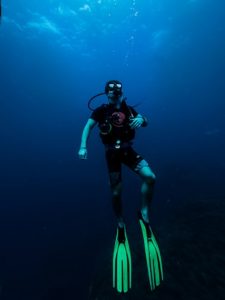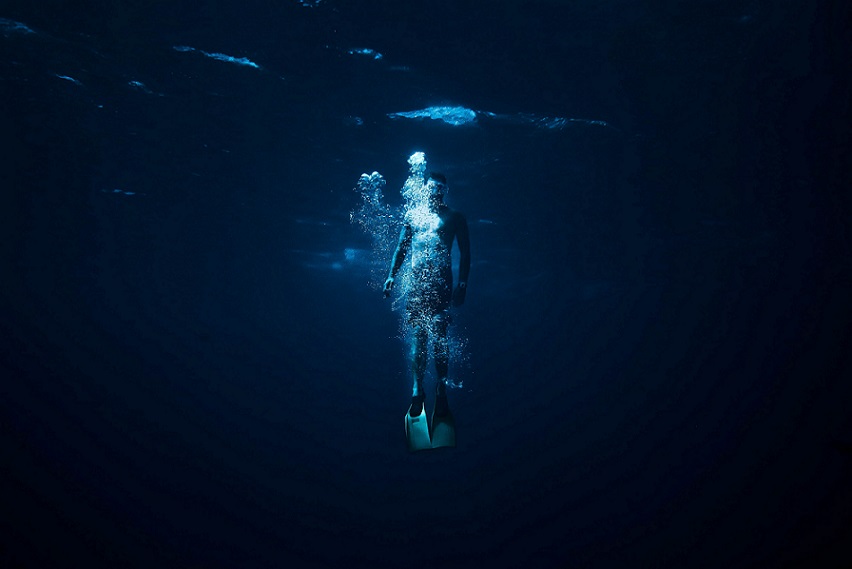Deep-sea diving is probably the only activity that man does for recreation but is surrounded by so many controversies. It is the human practice of going below the surface of the water into the deep-sea environment to interact with the environment there. There are different psychological effects that come with being immersed in water and the exposure to an environment that has high ambient pressure.
This is why the depth of diving and the duration of ambient pressure diving is usually limited, to ensure the safety of the diver because the anatomy and physiology of humans were not created to adapt to the conditions deep under the sea. That is why many types of equipment exist today which are used to help humans adapt to that environmental condition under the sea. Hence, increasing the timeframe of human dives and also ensures that it is possible to complete different types of work.
It is no longer news that diving under compressed gas may lead to acute decompression sickness which might also result in a permanent spinal cord and brain injury. However, it is less clear if there is a risk of brain injury where there is no acute decompression illness.
What is the implication of this for deep-sea divers? Does it mean that deep-sea diving is not safe? Or is it? This is quite a controversial subject, and the fact that it lacks any substantial evidence makes it even more controversial.
One thing you can be sure of is that your body would experience many positive changes when you dive into the sea. There are reflexes that spring into action when we go sea-diving in Island Hopping. These reflexes affect the major organs of the body including the brain, heart, and lungs. The organs then work in accordance to protect the body from the immense pressure of the deep sea.
This is basically known as the master switch of life. It keeps us safe and alive. As a matter of fact, an equivalent pressure to the one experienced underwater would have killed the diver if it were on land. That is the fear of science! But that does not happen underwater, divers remain alive and to stay mentally healthy, and the laws of physics are defied. The rules that apply to land do not necessarily apply in the ocean. This does not mean that there are no risks at all. All you need is the right mindset and you will enjoy the positive effects of deep-sea diving.
There are different types of diving methods or things to do in Dubai and different apparatus that are used to reduce the risk associated with deep-sea diving for divers.
Ambient pressure diving is a type of diving in which the diver has direct exposure to the pressure of the environment they are in. the diver usually holds their breath when they dive into the water or they use the equipment for diving such as SCUBA (self-contained underwater breathing apparatus).
Diving techniques such as saturation diving also helps to reduce the associated risk of acute decompression illness after deep diving for a long period of time. The diver can also be isolated from the high ambient pressure around him with the atmospheric diving suits. Divers can also use crewed submersibles for extending the range of depth and use remotely controlled machines which would reduce the health risk to humans.
Without a doubt, in the deep-sea environment, the divers are exposed to a lot of health hazards, although these risks are well controlled using different equipment, training, breathing gases, and diving skills. They also depend on factors such as the purpose of diving, mode of diving and depth.
However, this activity is largely viewed as a dangerous activity. In order to minimize the risks of health hazards, there are depth restrictions on diving activities. The depth for recreational diving is just 40 meters. The depth of commercial saturation diving is 530 meters. While diving with atmospheric suits has a maximum depth of 610 meters. Although there are varying levels of acceptable risk, there are restrictions to ensure that diving is only in conditions that are not considered excessively hazardous to the divers.
 There is no denying that there are questions asked about the long-term effects of diving into the brain that are still unanswered. There are neurological complications that may arise from injuries induced by diving. Some studies have indicated that there are lesions in the central nervous systems of divers that do not have any history of acute decompression sickness. These are white spots that are detected in the brain using the MRI (magnetic resonance imaging). This is a method that is very sensitive to the different changes that may happen in the brain. There are no indications yet that it is found commonly in divers than in other people that do not dive, and the importance of their presence is not ascertained yet, so some of the controversies around the problem that diving poses to the brain and human health are unfounded.
There is no denying that there are questions asked about the long-term effects of diving into the brain that are still unanswered. There are neurological complications that may arise from injuries induced by diving. Some studies have indicated that there are lesions in the central nervous systems of divers that do not have any history of acute decompression sickness. These are white spots that are detected in the brain using the MRI (magnetic resonance imaging). This is a method that is very sensitive to the different changes that may happen in the brain. There are no indications yet that it is found commonly in divers than in other people that do not dive, and the importance of their presence is not ascertained yet, so some of the controversies around the problem that diving poses to the brain and human health are unfounded.
With all the uncertainty around the effects of diving on the brain, there are still a lot of positives to enjoy in deep-sea dive. Furthermore, there are a lot of positive effects which it has on the brain that are actually proven.
-
It increases a person’s emotional well-being
Behind a person’s emotional well-being are the thoughts and feelings processed in the brain. There is a calming effect which being underwater does to a person’s brain. It makes them calmer and emotionally stable. There is, in fact, a theory that it is incredibly relaxing to watch aquariums and many people have attested to this. So, think of how much greater calmness you will feel being underwater yourself. This calmness can relieve stress, reduce depression, and help to achieve positive behavior mentally.
-
Improves blood circulation to the brain
There is a lot of pressure gradient that being underwater exposes your body to. This makes the muscles in your body work simultaneously. But for this to happen, your body requires a lot of oxygen. This causes the expansion of your blood vessels, allowing blood and oxygen to flow to different parts of the body including the brain.
-
Improves capacity to concentrate
The ability of your brain to concentrate and to be more aware, increases with the constant deep-sea diving. By learning to keep your balance in water while swimming, and simultaneously looking around and paying more attention to the environment you are in.
-
Relieves the brain and body of stress
There are different techniques that are required to breathe while diving in an underwater environment. When you focus on watching life under the water, for even a few minutes, and you allow that to distract you from the everyday issues you have to deal with in your life, you can be relieved of stress. You simply allow your brain to drift away from these issues and enjoy the recreational activity and the calmness that comes with it. Your brain and body can be restored to the natural balance.
Conclusion
Deep-sea diving is one subject of recreation that can be very controversial because of the many health uncertainties around it. However, many of these claims remain uncertain. But what is sure is that it does have many positives for the brain that improves the functions of the brain.









